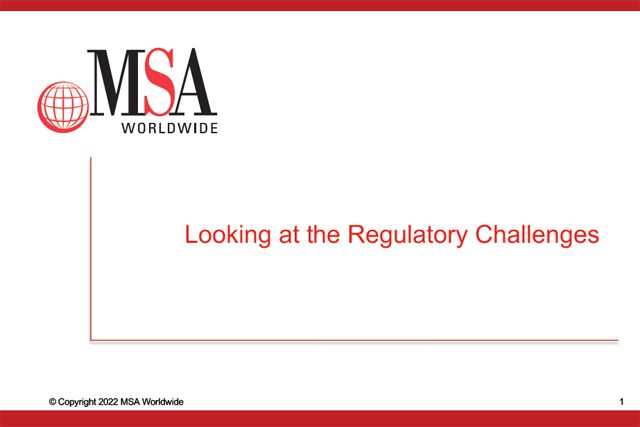Managing Labor Risk: Avoid joint employer and vicarious liability
By Michael Seid | Franchise Update Magazine
Almost a year before the NLRB issued its joint-employment decision on Browning-Ferris Industries, there was an outsized reaction about its potential impact. In every announcement we heard about franchising, we were repeatedly told the sky was going to fall if that decision became law. It didn’t fall. Franchising is still here and has continued to grow.
For years, franchisors have included sections in their manuals that provide recommended human resource practices. Some of these are quite basic and limited while others are extensive, including employment applications, policy guides, interview questions, disciplinary procedures, salary recommendations, scheduling practices, etc. Since Browning-Ferris, we continually butt up against lawyers recommending that franchisors remove entirely any HR recommendations from their manuals. Their belief is that this will protect the franchisor from claims of vicarious liability or joint employment.
Properly written HR information creates no risk
As part of our litigation support practice, we spend a considerable amount of time reviewing joint employment and vicarious liability case materials. Based on that experience, we don’t recommend or think it is in the best interest of the system for franchisors to remove the HR sections for two very important reasons. The first is that, properly drafted and formatted, HR information creates zero risk. It is not brand standards; it is merely recommendations and information the franchisee can use, edit, or ignore.
The second reason may be more important. Franchisees, often new to business, are neophytes in recruiting and managing labor. Removing this information can harm the system because it deprives franchisees of an essential and necessary resource to help them independently manage their business.
What about training materials?
A similar argument can be found in training materials provided for use with a franchisee’s staff. A well-trained staff will be more effective in meeting brand standards and will increase the franchisee’s profitability. However, requiring a franchisee to use franchisor-prescribed training material without change, and mandating that a franchisee’s staff pass a specified test to be hired, is most certainly problematic. Whereas, providing well-structured training materials and tests that a franchisee can use, adapt, or ignore creates zero risk.
- How or whether a franchisee’s staff is trained is really not the issue. The issue is whether or not the franchisee delivers to brand standards.
- How franchisees achieve that is solely up to them, and the training material can be a beneficial tool for them to use – if they choose.
Most franchisors invest heavily in providing initial training to franchisees and even have an opening support team that directly trains a franchisee’s initial team. This is considered a “best practice.” But is it really? By the time a few months have passed, much of the franchisee’s initial crew has turned over. Often the franchisor’s field staff conducts some training and gives direction to the new crew members. However, many lawyers believe this type of staff training can be a trigger for claims of vicarious liability and joint employment.
Establish a Train-the-Trainer program
Instead, recognizing the need to have a consistently well-trained work force, we generally advise our clients to expand their initial training regimen and require the franchisee to identify and bring to training someone who will be their designated trainer. Providing a train-the-trainer program for franchisees enables them to have capable internal resources to train and certify their replacement staff, eliminating the risk of liability to the franchisor.
We also restructure and change the roles of their opening support team. Instead of training the franchisee’s initial crew directly, their new role is to observe and support the franchisee’s trainer in training their own team. In doing so, we strengthen the capabilities of the franchisee’s trainer, while still ensuring that the staff has the tools they need to deliver on the franchisor’s brand promise. This really is the best practice method for unit training in franchising, and also lowers a franchisor’s liability risk.
Field support staff risk
In case after case, it is generally field support that creates the most joint employment and vicarious liability risk for franchisors. When field consultants act in the role of a supervisor — interviewing, hiring, managing, training, or directing a franchisee’s management and staff instead of acting like a consultant — they create significant risk. Even after Browning-Ferris, we still see field consultants reviewing franchisees’ employee files, standing in for management or staff when a unit is short-staffed, making non-brand standard comments on reports, and doing things as if they were responsible for the day-to-day management or supervision of a franchisee’s location.
The sole purpose and role of a field consultant is to consult with the franchisee to improve the performance of their business and to evaluate whether the franchisee is operating to brand standards. They should not supervise the franchisee’s management or staff, nor does their role include directly implementing change. That is the job of the franchisee.
Removing unnecessary controls
Today we spend considerable time scrubbing our clients’ manual libraries, training programs, and agreements to remove unnecessary controls. Our goal is to put the franchise relationship back into the proper balance between brand standards versus control. For years our primary risk focus was on lessening the risk of vicarious liability alone. Since under either the current or historic definition of joint employment the triggers for vicarious liability are almost identical to those of joint employment, these audits and recommendations alleviate much of our clients’ franchisee labor risk.
If you are not now routinely having your outside business or legal advisor conduct a proper review, make the call today. It’s worth the investment. Even if the risk of joint employment does become something we see in our rearview mirror, the risk of vicarious liability will always be part of franchising.
Michael Seid is Managing Director at MSA Worldwide. Contact him at 860-523-4257 or mseid@msaworldwide.com.
Do you have questions about joint employment risks in franchising?
MSA Worldwide provides expert guidance on how franchisors can avoid joint employment and vicarious liability risk. Contact us today for a complimentary consultation.







